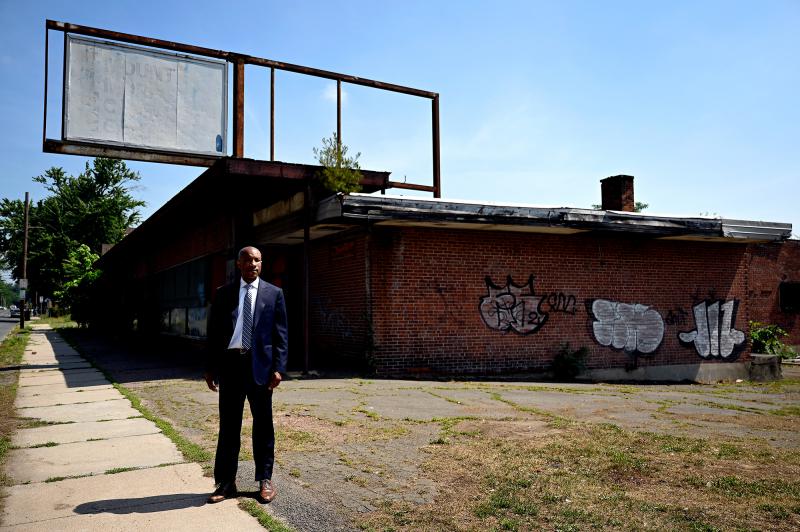Black Business Owner In Hartford Seeks Change For Community

Howard K. Hill stands near a grocery store that hasn’t been touched since it burned after Martin Luther King Jr.’s death in 1968. Hill has a vision for Barbour Street, one that includes economic advancement and empowerment through ownership.
(Joe Amon/Connecticut Public/NENC)
Howard K. Hill wants to bring the economic, social and cultural vibrancy back to Hartford’s Barbour Street. On a hot summer day, the funeral home owner may have been the only person dressed in a full suit strolling down a street peppered with closed businesses, dilapidated housing and streets in need of a serious cleanup.
Before the businesses burned in the late 1960s, Barbour Street was home to grocery stores, bakeries, a clothing store and other shops. Now Hill looks around and sees the opportunity to revive an area that used to thrive.
“When Martin Luther King died, it burned down and never recovered,” Hill said.
For decades, it’s been a shadow of what it used to be. Barbour Street is a stretch of blocks in the city’s North End that hasn’t been the same since a series of fires and looting spurred by the assassination of Martin Luther King Jr. in 1968.
Today, Unity Plaza sits across the street from a shuttered grocery store, the latter charred by the fires that erupted in the wake of King’s death. In the plaza: a small branch of the Hartford Public Library, a day care, dollar store, laundromat, an ATM, a post office, fast food spot and a grocery store that’s opened and closed several times since the 1960s. Hill himself is a business owner on Barbour Street. He purchased the third location for his funeral home in 2012.
Read the rest of this story at WNPR.org.
